Now in its 16th year the Community College Consortium for Open Educational Resources (CCCOER) continues on its trajectory as a community of practice for open education. Started in 2007 by Dr. Martha Kanter at Foothill-DeAnza Community College District, CCCOER joined what is now OE Global in 2011.
That moment too was when Una Daly began her long running role as Director of CCCOER, where she has led the growth and reach of CCCOER over the last twelve years. This December, Una is starting her “re-wirement” and welcoming Heather Blicher as incoming Director. Now was an ideal time for an OEG Voices conversation with Una about the evolution of CCCOER and to also hear from Heather who will be steering it into the future.
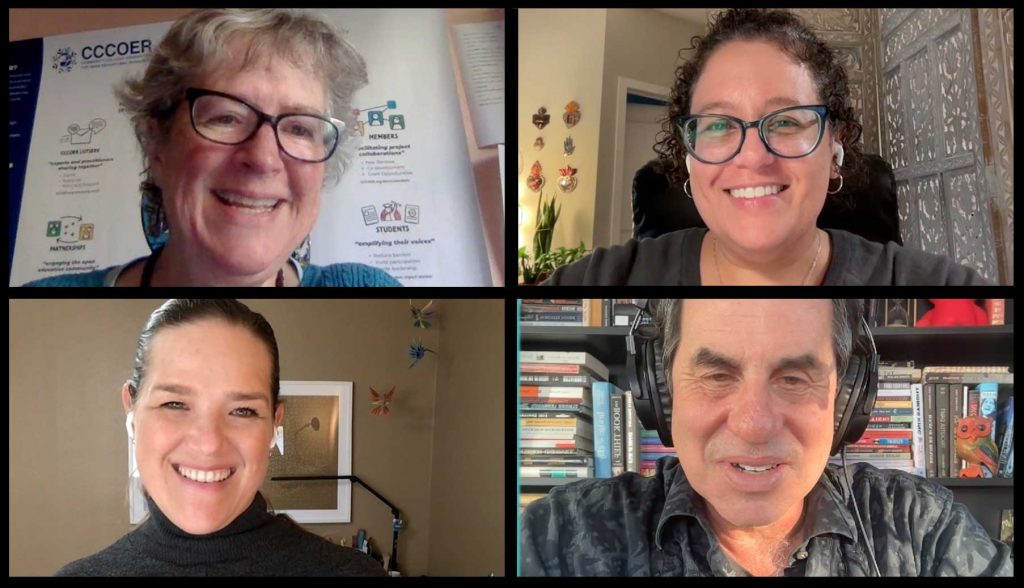
This Episode
FYI: This section of show notes alone was generated by AI Actions in the Descript editor we use to produce OEG Voices
In this episode, host Alan Levine discusses the evolution of the Community College Consortium of OER (CCCOER) with outgoing director Una Daly and incoming director Heather Blicher. Starting with the early days of CCCOER, the episode highlights the milestones, such as its union with OE Global, the OER degree program with Achieving the Dream, and the burgeoning relationship with NorQuest College. The conversation delves deeper into the role of community colleges, the shifting scenario in global open education, the future of CCCOER, and the handover of directorship from Una to Heather.
00:06 Introduction to Community Colleges and Open Education
01:03 The Journey of CCCOER
01:23 Reflections on the History of CCCOER
01:34 Transitioning Leadership in CCCOER
03:24 The Role of Community Colleges in Open Education
06:30 The Early Days of CCCOER
10:32 The Evolution of CCCOER
25:41 The Future of CCCOER
27:50 Farewell to Una and Welcoming Heather
30:31 Closing Remarks
Podcast: Play in new window | Download
at Descript.com
Additional Links and Quotes for Episode 62
You know, it’s all about relationship building it’s what our members do and how we can lift them up. But there have been other infrastructure things that have come along too, which have been really helpful.
So there’s been funding that’s come along. About 2010-11 our federal government in the US really propped up the open education space with the original TAACCCT grants. I think it was $2 billion, That changed things dramatically. Prior to that there were believers in open ed, but it just, it didn’t get the same spread.
Una Daly

- Una Daly (OE Global profile)
- About and History (CCCOER website)
- Martha Kanter (Wikipedia)
- Barbara Illowsky (De Anza College)
- Introductory Statistics (Open Stax)
- Judy Baker (Foothill College)
- Community College Open Textbooks Project (College Open Textbooks)
- Dear CCCOER Members (intro message from Una Daly, 2011)
- First message on CCCOER email list (December 13, 2011)
- OER ResearchHub Welcomes Visiting Fellow Una Daly (OERHub, 2013)
- CCCOER Web Site July 2017 (Internet Archive)
- CCCOER 10th Anniversary Retrospectives (CCCOER, 2017)
- CCCOER Executive Council
- CCCOER Projects
- Achieving the Dream OER Degree Initiative
- Trade Adjustment Assistance Community College and Career Training (TAACCCT) grant program (US Department of Labor)
- California Community College ZTC Program
- Open for Anti-Racism Program (OFAR)
- Regional Leaders of Open Education Network (RLOE)
- Open Pedagogy Summer Adventure (OEG Connect)
Change happens faster at community colleges than at our other higher ed institutions. And so often we can introduce innovative programs that would take a bit longer even though community colleges do it with less resources.
Una Daly
Having been a student at a community college and later focusing my work with them, I can say that just as the name suggests, community colleges are for the communities they serve. They provide accessible and affordable education that can be a gateway to traditional four year institutions. They can also provide vocational pathways and certifications for in-demand fields that require specialized training, often teaming up with local companies to fill gaps in a skilled workforce. They offer flexible schedules to accommodate students with jobs and family responsibilities. And, because of all of these elements, community colleges can meet the needs of a diverse student body, all ages, income levels, and backgrounds.
Heather Blicher
- Heather Blicher (OE Global profile)
- Who is Heather Blicher? (OE Global News)
- Northern Virginia Community Colleges Libraries (first OER work)
- The Last Cuentista (by Donna Barba Higuera)
- December 2023 CCCOER Member Mixer (Heather introduced, storytelling)
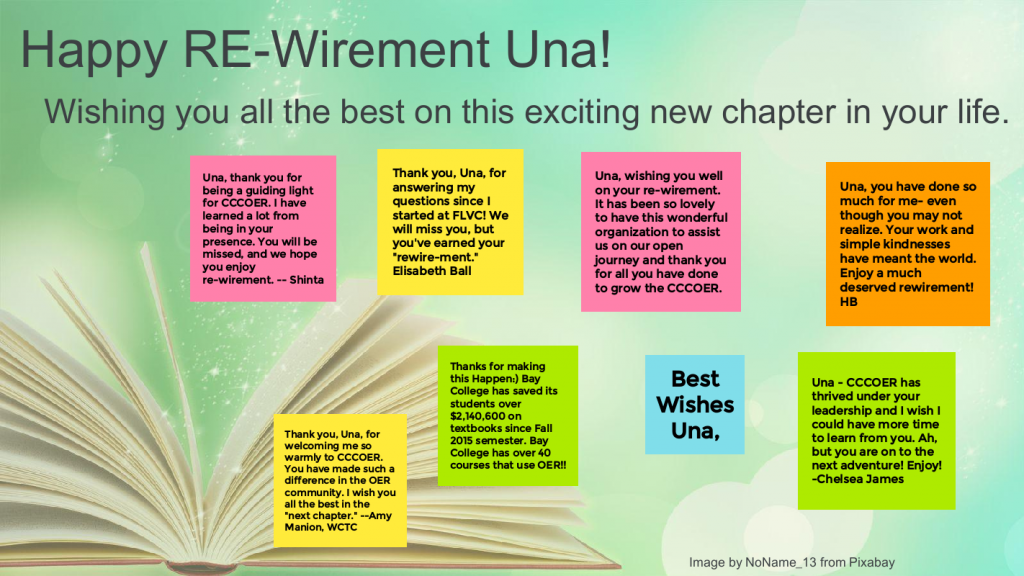
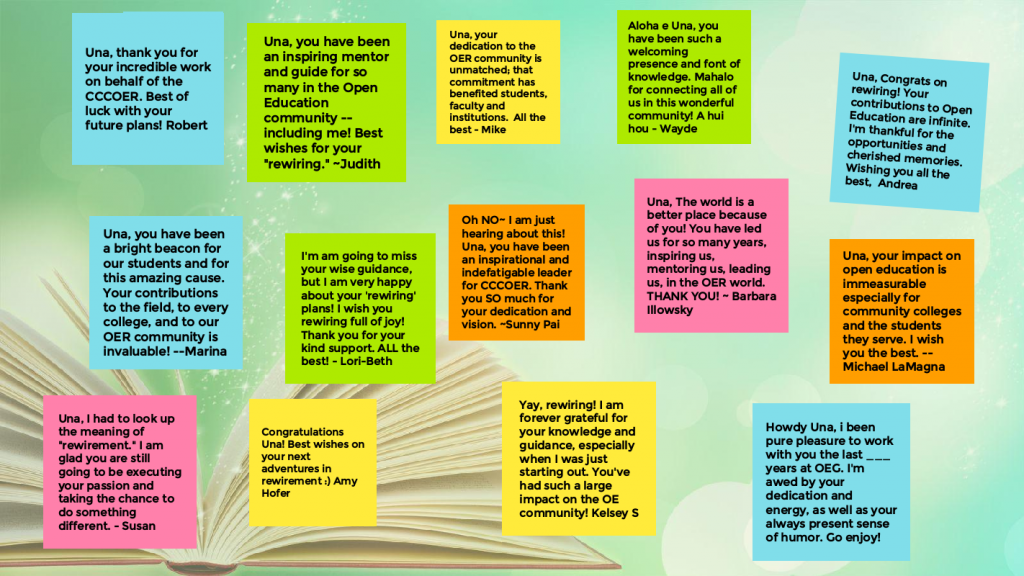
Our open licensed music for this episode is a track called Infographics Loop by Serge Quadrado licensed under a Attribution-NonCommercial 4.0 International License. Like most of our intro music, it is from the Free Music Archive (see our full FMA playlist).
This was another episode we used Descript for transcribing and editing audio that has greatly enhanced our ability to produce show. We have been exploring some of the other AI features in Descript, but our posts remain human authored unless indicated otherwise.
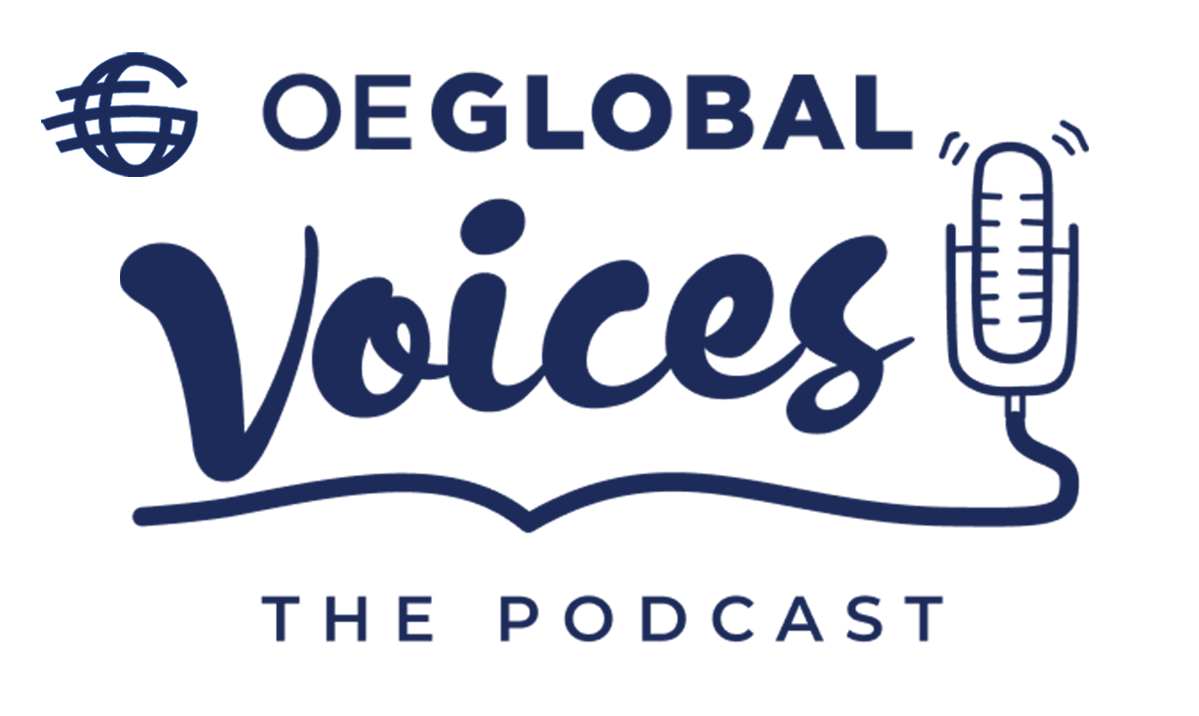
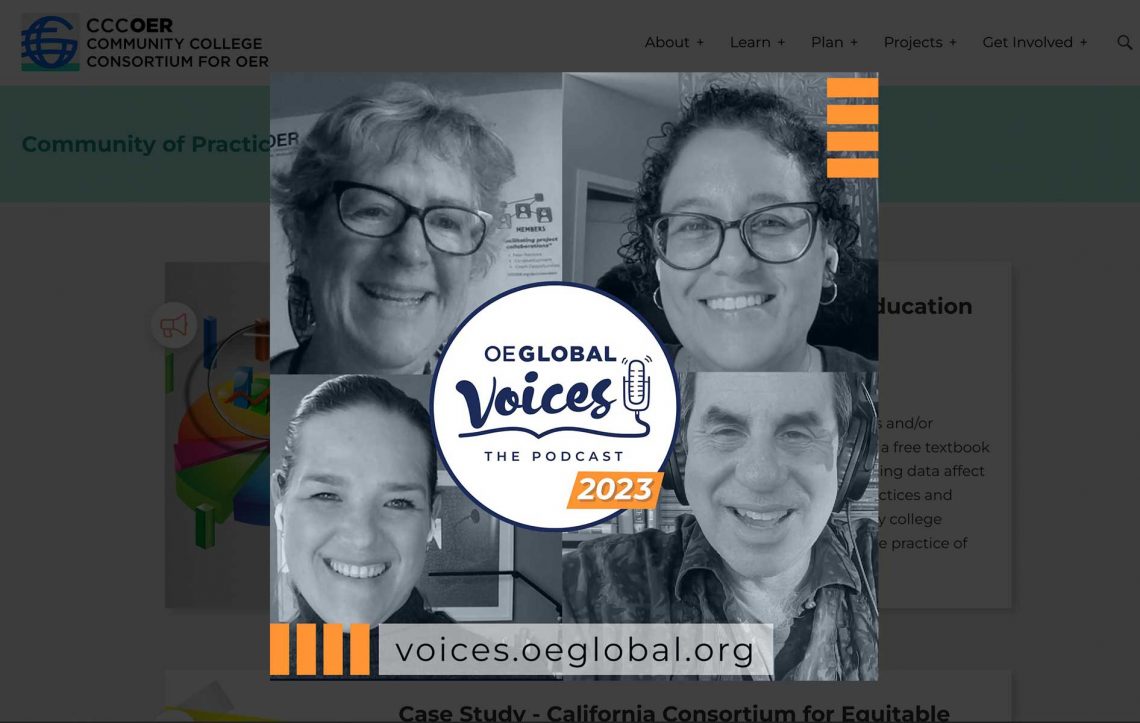
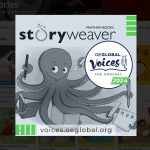
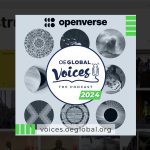



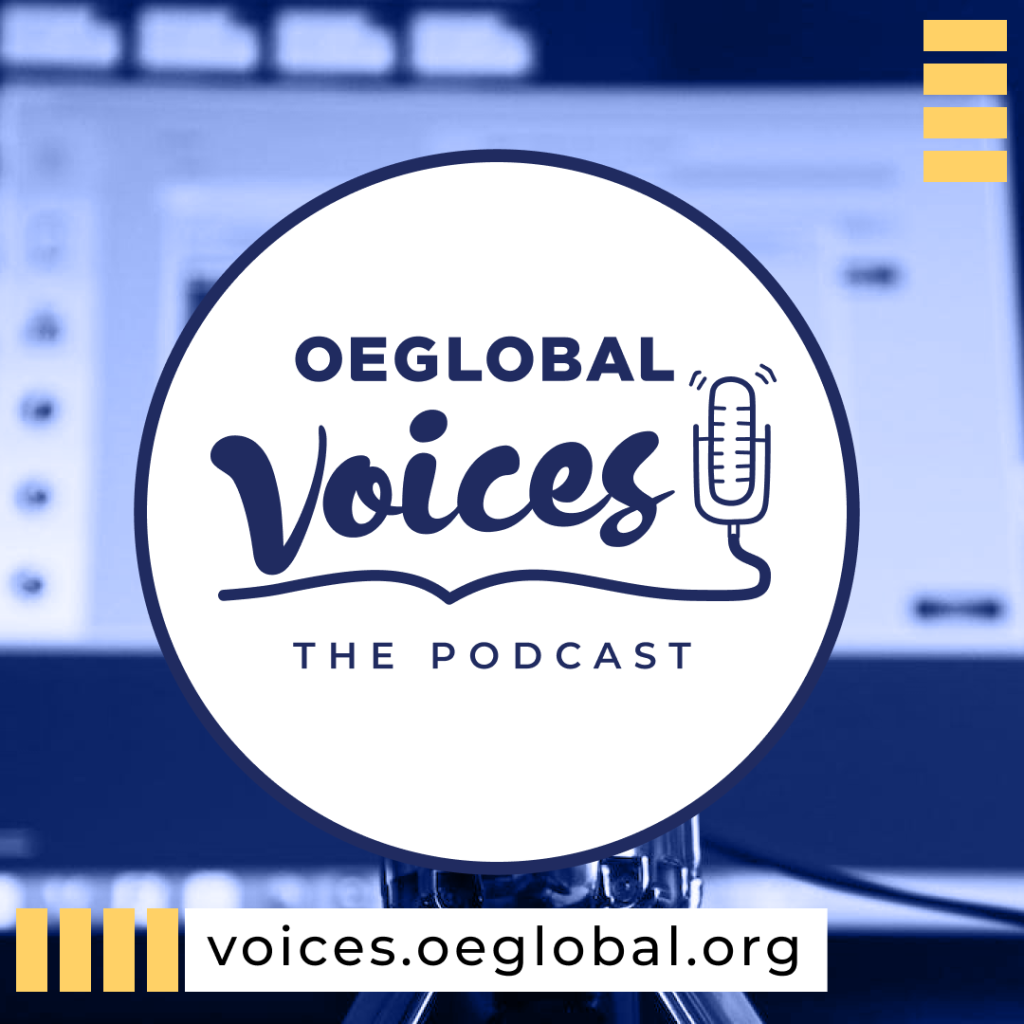

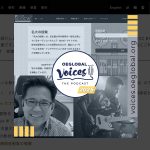




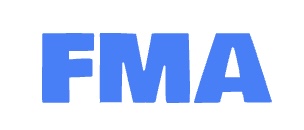
Start the discussion at OEG Connect